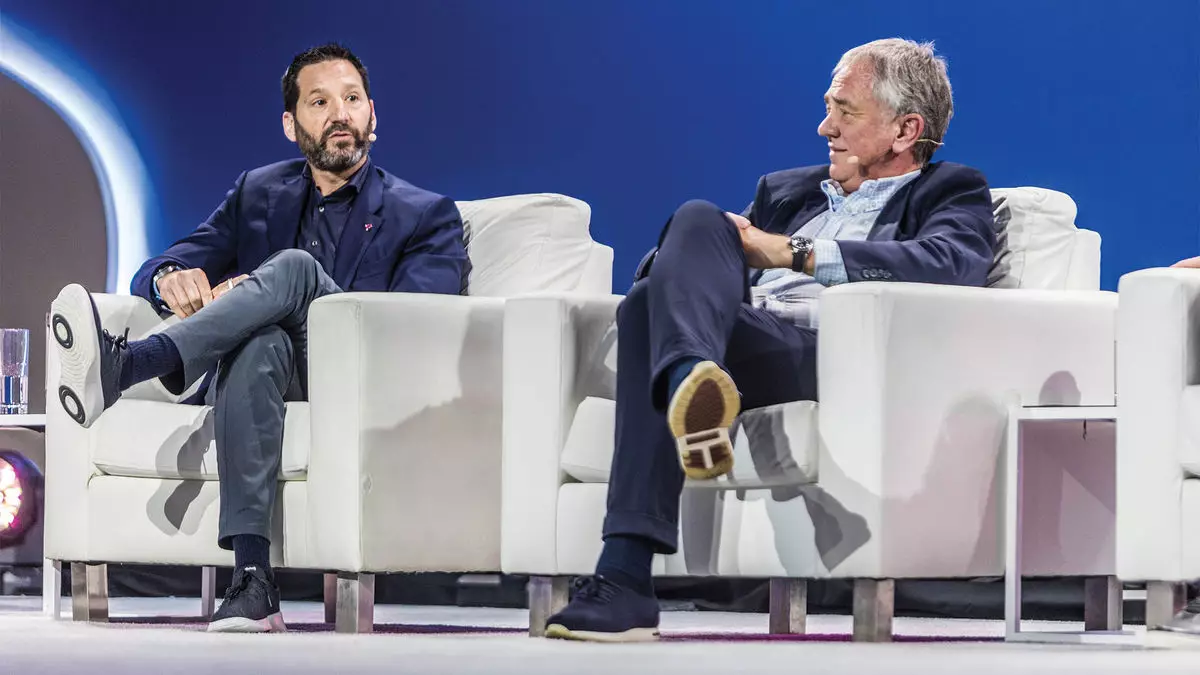In the ever-evolving landscape of the cruise industry, recent dialogues at the Seatrade Cruise Global conference in Miami Beach suggest a sector in flux but fundamentally robust. Leading executives from various cruise lines acknowledge the palpable uncertainties stemming from economic fluctuations, yet they remain optimistic about the industry’s resilience. The juxtaposition of consumer hesitance and executive confidence creates an interesting dynamic that reflects broader societal trends influenced by financial volatility.
It is clear that the cruise industry is not exempt from the economic tremors affecting consumer behavior. As the stock market experiences fluctuations, the ripple effects can be felt across various sectors, particularly in travel. Navigating through these turbulent waters requires adaptability. Norwegian Cruise Line Holdings CEO Harry Sommer voiced a sentiment echoed by many: despite minor market dips, the long-term strategy remains intact, signifying a steadfast commitment to growth even amidst short-term uncertainties. His assertion that “it’s full steam ahead” embodies a spirit that characterizes many in the industry—a determination not only to survive but to thrive.
Consumer Behavior in Times of Change
However, consumer sentiment often reigns supreme in these discussions. Carnival Corp. CEO Josh Weinstein pointedly reflected on the nature of uncertainty in consumer decision-making. The undeniable fluctuation in the economy poses complex questions for potential cruisers, leading to a more deliberative booking process. Many customers are no longer rushing into decisions; instead, they are taking their time to assess the market landscape and its implications on travel spending. Ken Muskat from Scenic Group USA noted that this necessitates a pause in reservations as interested parties weigh their options amidst economic upheaval.
This trend of hesitancy is understandable. In moments of financial insecurity, psychological barriers can significantly influence spending habits. Individuals may retreat into their comfort zones, reassessing priorities and focusing on immediate needs. However, as emphasized by Muskat and others, this should not be interpreted as an imminent decline in the industry’s fortunes. Instead, it hints at a transformation in consumer philosophy regarding travel; experience-based expenditures, such as cruising, are increasingly prioritized in the face of financial uncertainty.
Value Proposition: The Comeback of Cruising
One of the mainstays of the cruise industry’s stability lies in its value proposition. Executives assert that cruising provides significant value for money, an attribute that resonates strongly with consumers when budget constraints loom large. As mentioned by Pierfrancesco Vago, MSC’s executive chairman, passengers appreciate the depth of experiences they can access through cruise travel, often finding it more economical than other forms of vacationing. In a world where material possessions often take precedence, the “experiential” consumer is rising, one that seeks fulfillment through travel and adventure, making cruising an attractive option.
This enduring appeal of cruising is bolstered by a collective sensibility emerging among consumers. As John Waggoner, chairman at Victory Cruise Lines, points out, even in periods of economic downturn, many individuals adopt a “carpe diem” perspective. The realization that life is fleeting can motivate people to seek joy and memorable experiences through travel, putting them back in touch with the essence of human craving for exploration and connection.
The Road Ahead: Optimism and Adaptability
Amidst the uncertainties, a strong thread of optimism weaves through the closure of the conference. Industry leaders exude confidence that, akin to previous economic challenges, consumers will eventually recalibrate their spending habits in favor of experiences that enrich their lives. The common goal shared by these executives is not merely to weather the storm but to emerge stronger, demonstrating a remarkable capacity for resilience.
CLIA president Charles “Bud” Darr aptly highlighted the need for adaptability in engaging with evolving policies and economic dynamics. The cruise industry’s history reflects its ability to navigate government changes, societal shifts, and economic pressures. The emphasis on strong messaging and constant engagement with stakeholders indicates a strategic approach to weather the tides of uncertainty.
As the cruise industry sails forth into uncharted territories marked by both turbulence and opportunity, the collaboration amongst industry leaders signals a readiness to evolve. The collective philosophy embodies a commitment to cater to an increasingly discerning consumer base while emphasizing the unparalleled experiences that cruising offers. As they tighten their budgets, travelers will seek out avenues that promise both adventure and value—the very essence that cruising has always delivered.


Leave a Reply